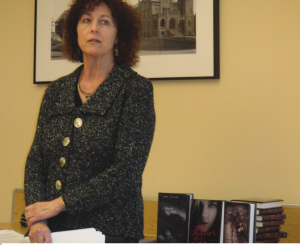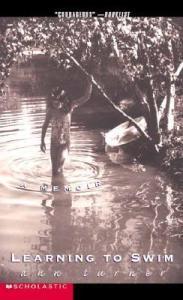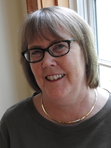Ann Turner Speaks about Writing for Teens
On Saturday morning, Ann Turner, the author of more than fifty books, gave a talk sponsored by Straw Dog Writers. Ann suggested that writers might ask ourselves what age person is most alive for us inside, then tap into that person. She said that when she writes for teens she doesn't so much remember who she was than become that girl, taking on the feelings of vulnerability, of being wrong, not fitting in, and desiring passionately to meet the world with love.
Ann read from her most recent novel, Father of Lies, the story of a bipolar girl in Salem at the time of the witch accusations, which explores expectations of who might be crazy and who evil. She also read poems from Learning to Swim, a slim, moving memoir of childhood sexual abuse she wrote to give readers comfort and courage. The child in the poems faces down fears of the muck of a pond, the uncertain bottom, and trusts her own ability to float, coming at last to move with ease, as learning to swim becomes a metaphor for healing. The poems about the girl are framed by the voice of a teen, the age intended as the book's main audience, who relays the challenge, necessity, and triumph of telling a trusted someone what happened. This beautiful, brave book should be in every school library.
Ann's picture books and novels often have historical settings, and when I asked how she decides how much background information to leave in, she said it was mostly a matter of practice and intuition, comparing it to baking bread: the baker keeps adding flour until she recognizes the time to stop by its look, heft, and texture. The writing should also lead the reader through unfamiliar territory by feel, and Ann mentioned that reading your work aloud is a good way to gauge this. She also warned, "if you're doing research you can pretend that you're writing. And you are, but…" Yes, I know that fragile pause. She said that a desire to be right can take over the story. "There's a point to stop and let story take over. Like swimming, you need to let the current take you where it will."
She answered a question about being in a writing group, and said what she finds most useful is when others don't stress what doesn't work, but instead ask questions, exposing areas she realizes might be more explored. Finally, she spoke of letting your material speak to you: "I think there's something magical hidden in the heart of the story that if we listen, it will tell us where to go." For her it's prayer more than technique that shows a way.













